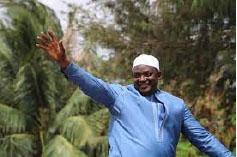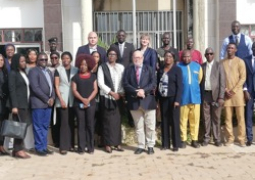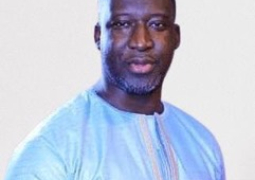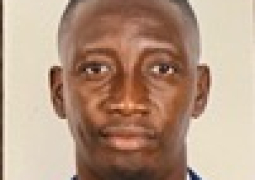
The survey came on the heels of a similar one conducted in August and September 2021 which also predicted President Barrow likely to win.
NPP is followed by United Democratic Party (UDP) at 24 and 22 respectively, while others (PDOIS, GDC, GUP and Essa Faal) struggle for less than 10 % and 15% of respondents votes respectively.
A significant 24% of respondents say they cannot tell who will win, while 25% say they are undecided or say it is their secret when asked about their intention to vote.
Dr. Mustapha Jobarteh, disseminating the findings at Gambia Tourism and Hotel Institution on Friday, said a very high proportion (89%) of the respondents believe that the chances of peaceful election are very high (50% and above).
The overarching goal of the CepRass Opinion Poll (OP) is to provide empirical evidence on key election issues in The Gambia through regular surveys.
The second OP was conducted between 9th and 19th November 2021 with the goal to track changes in public perception/opinion on electoral issues since the first OP conducted in August-September 2021 and results released on 1st October 2021.
The OP was divided into voting, political parties, COVID-19 and election.
The design adapted the recent Integrated Household Survey (IHS) with telephone numbers as the frame, which comprises 14,191 households from 8 local government areas (LGAs) within 48 districts in The Gambia.
A multi-stage sampling design was used where in the first stage households were stratified according to LGAs, and at each stratum (LGA) probability proportionate to size (PPS) was used to select a representative sample of districts.
The proportions were based on the number of registered voters at LGA level from Independent Electoral Commission (EC.)
The proportion of male and female respondents was designed to mirror the proportions of registered voters at each district. However, in field exercise, this was not achieved (32% female registered voters vs 52.5% in the population).
Twelve (12) enumerators and 3 supervisors were recruited and trained to conduct the data collection and trained in a two-day training session to familiarise the enumerators with the survey instrument and the study methodology to avoid mistakes and ensure data quality.
Overall, 1,256 respondents were interviewed across all LGAs and 34 districts.
Dr. Jobateh added that they find that the most important issues that the upcoming president must address are health, agriculture and security, while foreign exchange, civil service reforms and government debt are the least on the agenda of issues to address.
He also said that when asked of the most important thing for deciding which candidate to support, an overwhelming 78% said campaign promise while cumulatively less than 0.5 percent of the respondents said region or tribe.
Read Other Articles In Headlines




